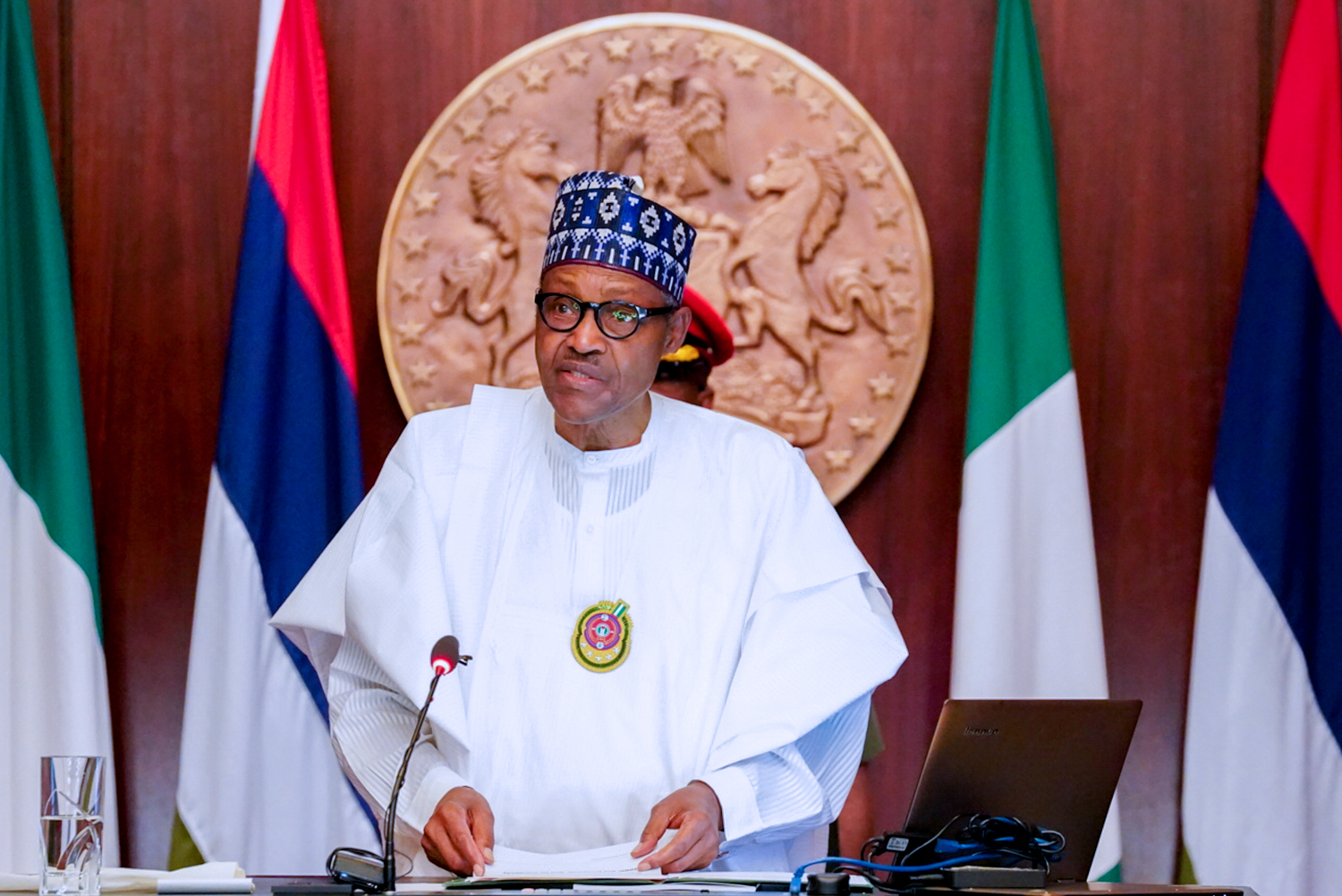President Muhammadu Buhari has declared that he would compromise the electoral process in 2023, promising Nigerians free, fair and credible elections.
The Herald gathered that President Buhari made this known on Tuesday morning, December 17, when Secretary to federal government, Boss Mustapha, and some of his aides and assistants went to present a birthday card to him to mark his 77th birthday anniversary at the State House in Abuja.
READ ALSO: Buhari Urges State Govts to Improve Access to Quality Education
The president admonished politicians who intend to vie for offices in the next general elections in 2023 to start working hard to merit the trust of the people, warning that he would not allow bending the rules for anyone against the will of Nigerians.
He, however, charged members of his political party, saying whoever wants to contest must work hard as he will not condone anyone using the name of his office to canvass for support.
The Herald gathered that President Muhammadu Buhari called on state governments to take necessary actions to improve access to quality education in their states.
Buhari, represented by the Minister of Education, Malam Adamu Adamu, made the call in Abuja at the National Launch and presentation of the 2018 National Personnel Audit (NPA), Report.
The News Agency of Nigeria (NAN), reports that the document was put together by the Universal Basic Education Commission (UBEC), with efforts from other stakeholders. He said that the call to the states became necessary so as to close the gaps identified in the report and also to find lasting solutions to the problems of education in the country.
According to him, the NPA is key to the realisation of the Ministerial Strategic Plan (MSP), because everything ultimately depends on it.
He said: “Without data, you cannot plan anything; the government wants to ensure that all Nigerian children are given equal opportunity to complete basic education. This document contains data of enrollment and locations of schools for private and non-private, and the number of qualified teachers and other indices, in order to determine key indicators in the education sub-sector.
“Our stakeholders will find this document useful. However, this is not to say that that this document being launched today is perfect. I am sure the report has revealed some gaps that need to be filled at various levels of government so as to improve basic education delivery in our country.
“I want state governments to critically examine the findings or recommendations contained in this report that affect their states and take necessary actions to ensure improved access, equity and quality in education delivery. States with very high deficiencies in teachers and infrastructure facilities need to redouble their effort to close these gaps,” he said.
He added that the ministry would critically examine the findings and recommendations contained in the report and come up with policies and actions that would help move the sector forward.
He said that the initiative and interventions in the education sector were borne out of the belief in the centrality of education for the social, political, economic transformation of the country.

